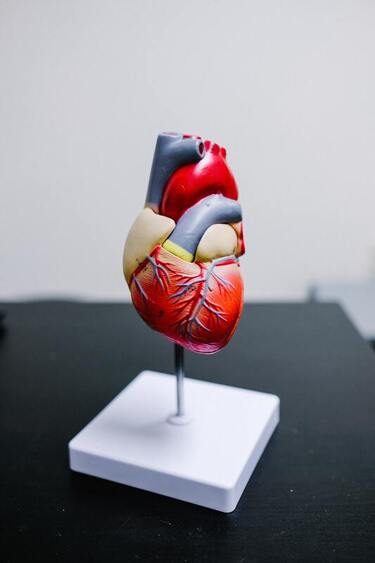 Photo by Kenny Eliason on Unsplash
Photo by Kenny Eliason on Unsplash Making these changes is hard and can become overwhelming very quickly.
So where do we start? Step one would be to run advanced cardiac blood work to determine the status of your risk factors and guide how proactive we need to be. From there, botanical medicines and targeted nutritional supplementation can work well to modify these levels, as necessary.
An advanced assessment includes testing lipid levels, lipoproteins (proteins that transport lipids in the blood stream), inflammatory markers and hormones.
1) Lipids:
Lipids are fats that our body uses to make hormones, keep our skin vibrant, absorb nutrients, etc. A basic lipid panel is often run as part of routine bloodwork to screen for elevated cholesterol. This includes total cholesterol, HDL, LDL, and triglycerides. Where this is an incredibly important screening measure, it is not comprehensive for assessing overall cardiovascular disease risk.
An NMR Lipo Profile is one example of an extended lipid profile that includes the number and size of each lipid molecule. This is important because smaller lipid molecules are more likely to penetrate an inflamed blood vessel and contribute to plaque.
This test also includes measures of very low-density lipoprotein (VLDL), Apolipoprotein-A and Apolipoprotein-B. VLDL and Apo-B are known to have a high plaque producing potential, where Apo-A is cardio-protective. (2)
2) Inflammatory Markers:
Inflammation plays a leading role in the development of atherosclerosis. (3) Once the inner muscular layer of a blood vessel is irritated and becomes inflamed, it is easier for immune cells and fats to accumulate and produce plaque.
C-reactive protein (CRP) is a protein our body produces in response to inflammation in general. Where it is not specific to the cardiovascular system, it can be a useful marker to track your progress with a treatment plan. (4)
Homocysteine (Hcy) is an inflammatory marker that is more specific to the cardiovascular system. It is the byproduct of protein breakdown that is cleared out of the system with the help of folic acid and other B-vitamins. When elevated, this can be a sign that either:
- We are not eating enough green leafy vegetables rich in folic acid, OR
- There is a gene mutation that does not allow the body to make the MTHFR enzyme needed to convert the folic acid we gain from our diet into the methylenetetrahydrofolate (MTHF) form needed for clearing homocysteine.
3) Hormones:
Our bodies make hormones to send signals and ensure the system is operating smoothly. This process can affect how they use fats and sugars. When elevated, thyroid stimulating hormone (TSH), cortisol (the main stress hormones responsible for signaling a fight or flight response in our bodies) and testosterone can cause total cholesterol and LDL levels to rise. (6,7) A similar effect can be seen in response to depleted estrogen levels as a woman experiences menopause.(8)
Insulin is the hormone responsible for drawing sugars out of the blood stream to be burned for fuel in the tissues. When insulin is elevated, this can be a sign that blood sugar levels have been high for a prolonged period which is a potential source of inflammation in the blood vessels.
Do you have a family history of cardiovascular diseases?
Why wait to screen for your cardiovascular status?
We offer comprehensive functional lab testing. To read more about this service click here.
References:
- CDC. Heart Disease Facts | cdc.gov. Centers for Disease Control and Prevention.
- Emeasoba EU, Ibeson E, Nwosu I, Montemarano N, Shani J, Shetty VS. Clinical relevance of nuclear magnetic resonance lipoprofile. Front Nucl Med. 2022;2.
- Malekmohammad K, Bezsonov EE, Rafieian-Kopaei M. Role of lipid accumulation and inflammation in atherosclerosis: focus on molecular and cellular mechanisms. Front Cardiovasc Med. 2021;8.
- Nehring SM, Goyal A, Patel BC. C reactive protein. In: StatPearls. StatPearls Publishing; 2022.
- Maduka IC, Neboh EE, Ufelle SA. The relationship between serum cortisol, adrenaline, blood glucose and lipid profile of undergraduate students under examination stress. Afr Health Sci. 2015;15(1):131-136.
- Kaur H, Werstuck GH. The effect of testosterone on cardiovascular disease and cardiovascular risk factors in men: a review of clinical and preclinical data. CJC Open. 2021;3(10):1238-1248.
- Guetta V, Cannon RO. Cardiovascular effects of estrogen and lipid-lowering therapies in postmenopausal women. Circulation. 1996;93(10):1928-1937.

 RSS Feed
RSS Feed